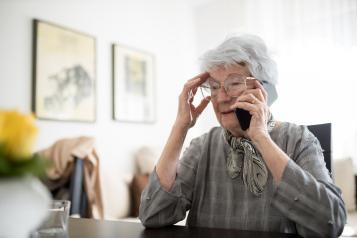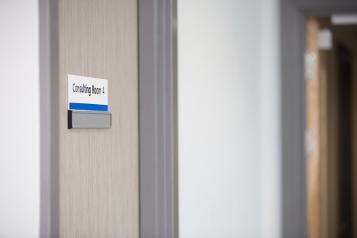Early diagnosis: The key to improving support for people affected by dementia
A dementia campaigner says he would like to see people get earlier diagnoses to help them take more control of their care.
71-year-old David Walker has been caring for his wife Georgina, 70, at their home in Wiltshire for four years. Georgina was diagnosed with Alzheimer’s disease in 2013 and David believes if they had an earlier diagnosis their lives would be different today.
David – along with others affected by dementia – is being called upon to share his experience to inform changes to local dementia support. The NHS Long Term Plan sets out the ways in which dementia care needs to improve. Local NHS services now need to hear from their communities about what changes should look like where they live.
What would you do?
Share your views about what would make support for people affected by dementia better where you live.
“I am particularly interested in the section in the Long Term Plan where it talks about people getting more control over their own health and more personalised care when they need it,”
“Obviously my experience is predominantly around the provision of dementia health services, specifically the lack of support and awareness for the benefits of early diagnosis. If we had an earlier diagnosis of Georgina's condition, and the relevant support, our lives would be a lot different to what they are now.”
David met Georgina in 1964, they married five years later, had two children and now have four grandchildren.
“Georgina was very creative and enjoyed knitting and dressmaking. She was always known as a fun person to be around.”
In 2011 Georgina’s behaviour started to change. She would forget where she had left things, such as her glasses, cigarettes, and lighter, and when David found them, she would deny having left them in that place.
“This escalated into a form of paranoia, believing a neighbour was coming into the house and interfering with her shoes, make up and clothes,”
“Despite showing Georgina that this was impossible, she refused to believe me. When I finally managed to persuade her to see the local GP, the diagnosis was ‘depression, here are some pills, get on with your life’. As a result of her worsening behaviour to me, and threats to the neighbour (who knew nothing about this), I decided we should move away, and we relocated to Wiltshire.”
Early diagnosis is not a cure but it is a start
The diagnosis of early onset dementia was made in 2013, following a visit to the local GP, and the results of a series of memory-based questions and brain scans.
David says the most difficult part of the process was that Georgina would not accept that there was something wrong with her memory.
“Georgina’s behaviour deteriorated to the point where it became impossible to manage, and she was subsequently admitted to hospital, under the Mental Health Act. I think it’s vital to get an early diagnosis, as it helps carers (and those they care for) prepare for and have a better understanding of the condition, and how it will impact on their life.
“But also, for them to know that there can be a future, together, and the solution does not always have to be a care home.
“In relation to Georgina’s diagnosis, the correct referrals were made, the correct clinical and psychiatric support was put in place, and the local carer support was made available.
“How? Because of my determination that regardless of how Georgina’s condition deteriorated, she would be cared for by me, at home.
“Unfortunately, as is often the case, the biggest barrier was communication between the relevant services. It’s important that all the services come together at the appropriate time to enable carers to support their relatives at home for as long as possible.”
Have your say
Share your views about what would make support better for people with dementia in your community.


